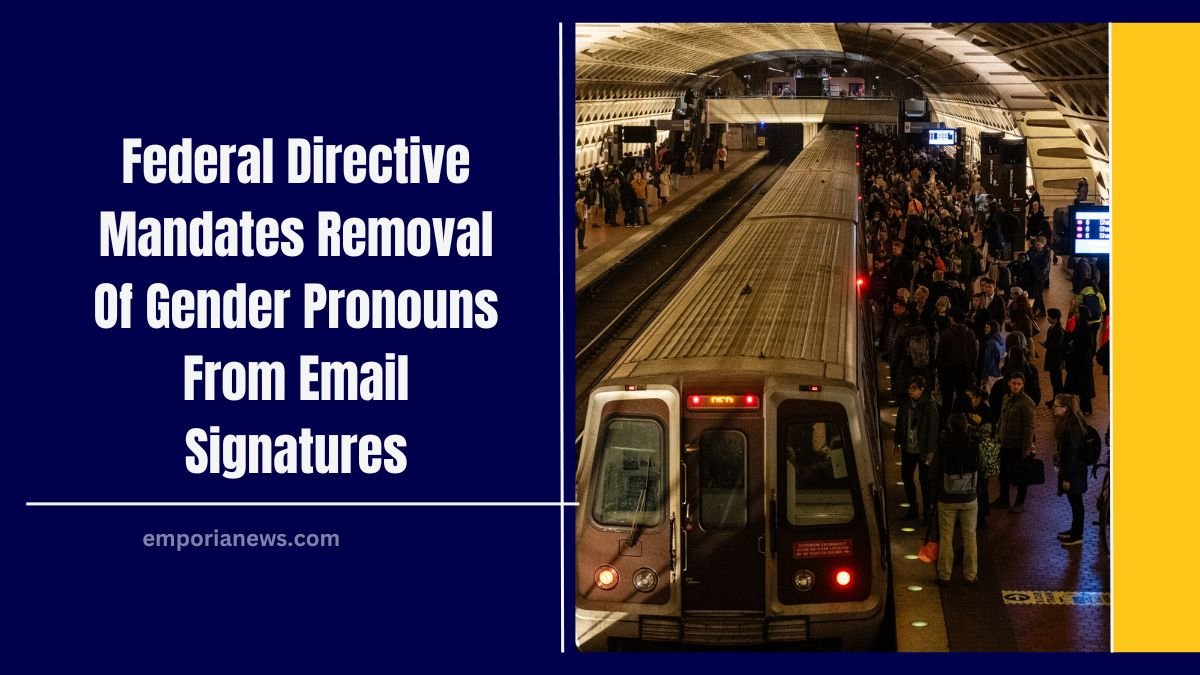In a significant policy shift, federal employees across various U.S. government agencies have been instructed to eliminate gender-identifying pronouns from their email signatures and official communications.
This directive aligns with President Donald Trump’s recent executive orders aimed at dismantling diversity, equity, and inclusion (DEI) initiatives within federal operations.
Executive Orders Prompting the Directive
On his first day back in office, President Trump signed executive orders targeting DEI programs and what he termed “gender ideology extremism.” These orders mandate that federal agencies:
- Cease the use of gender-identifying pronouns in all official communications.
- Remove references to gender ideology from websites, documents, and forms.
- Replace the term “gender” with “sex” in official materials.
- Disband employee resource groups related to gender issues.
- Terminate grants and contracts associated with gender ideology.
The Office of Personnel Management (OPM) issued a memo to department and agency heads, setting a deadline of 5 p.m. on January 31, 2025, to implement these changes. Agencies are required to report their compliance by February 7, 2025.
Agency Responses and Actions
In response to the directive, several federal agencies have taken immediate action:
- State Department: Acting Under-Secretary for Management, Tibor P. Nagy, instructed all employees to remove gender-identifying pronouns from email signatures by the specified deadline. The department is also conducting a comprehensive review to eliminate gender ideology from its communications and programs.
- Centers for Disease Control and Prevention (CDC): The CDC took down websites containing critical health information, including resources related to HIV and transgender individuals, to comply with the order.
- Department of Transportation: Issued directives to remove gender-related language from official communications, even as staff managed the aftermath of a recent plane crash near Ronald Reagan National Airport.
- Department of Energy: Employees were instructed to excise DEI language from federal discourse, communications, and publications.
Additionally, the Federal Aviation Administration (FAA) and the Census Bureau websites experienced outages or content removals as they worked to align with the new directives.
Impact on Federal Websites and Resources
The implementation of these directives has led to significant changes across federal websites:
- Website Alterations: Agencies have removed or revised content to eliminate references to gender ideology.
- Resource Removal: Critical health information, particularly concerning transgender health issues, has been taken down, raising concerns among public health experts.
| Agency | Actions Implemented |
|---|---|
| State Department | Removed gender pronouns from email signatures; initiated review to eliminate gender ideology. |
| CDC | Took down websites with health information related to transgender individuals. |
| Department of Transportation | Removed gender-related language from official communications. |
| Department of Energy | Instructed removal of DEI language from federal discourse and publications. |
| FAA and Census Bureau | Experienced website outages and content removals to comply with directives. |
Broader Context and Implications
These actions are part of a broader effort by the Trump administration to redefine federal policies concerning gender and DEI initiatives.
The executive orders emphasize a binary understanding of sex, recognizing only male and female, and seek to remove what is termed as “gender ideology” from federal operations.
Critics argue that these measures could lead to the erasure of protections and recognition for transgender and non-binary individuals within federal policies and programs.
The removal of health-related information from federal websites has also raised concerns about potential negative impacts on public health efforts, particularly those aimed at supporting LGBTQ+ communities.
The directive to remove gender-identifying pronouns from federal email signatures marks a significant shift in U.S. government policy regarding gender identity and DEI initiatives.
As agencies implement these changes, the broader implications for federal employees and the public remain a topic of active discussion and concern.




